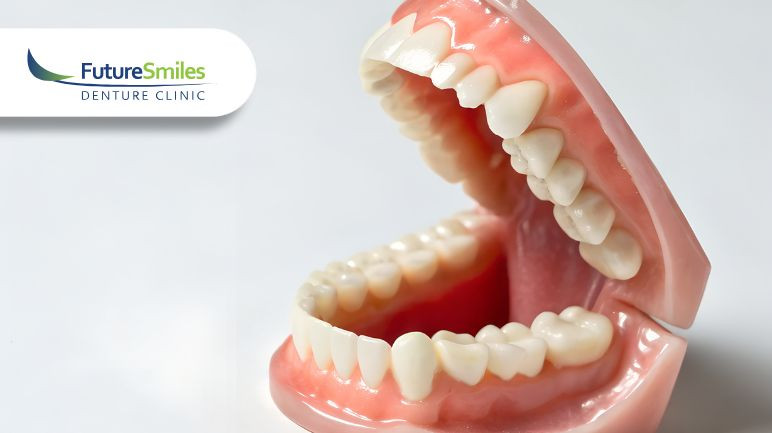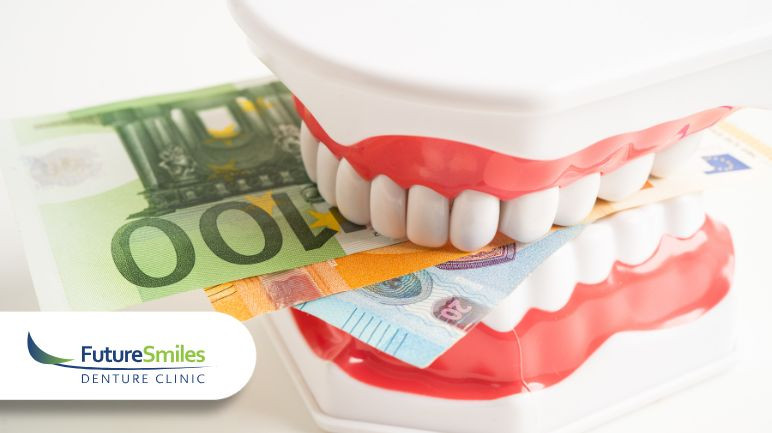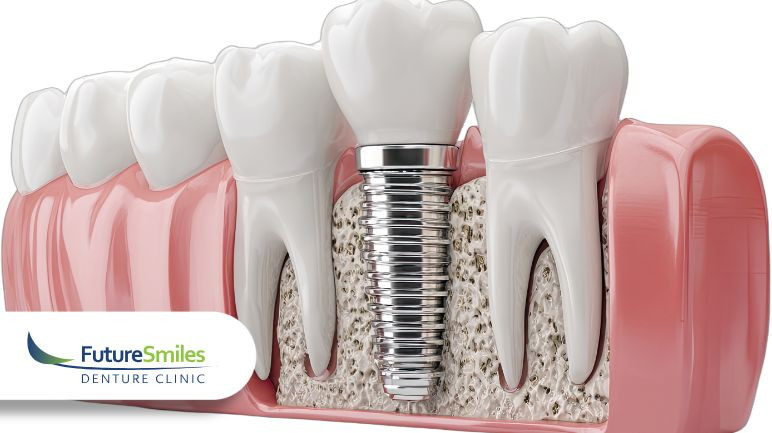Dental implants are the most successful tooth replacement treatment available. However, if you're a smoker, you are at risk for peri-implantitis. Here are 3 reasons why smoking and tooth implants just don't mix.
Do you desire a tooth replacement option that is natural-looking, durable, and extremely long lasting? While the success rate of tooth implants is as high as 98%, it’s important to understand that some patients are at risk of developing peri-implantitis, which can lead to implant failure.
Some of the signs of this condition include:
- pain around the implant area
- swollen lymph nodes
- bad taste in the mouth
- bleeding at the gum line
- loose implant
High Quality & Affordable Tooth Implants in Calgary
At Future Smiles, we believe that everyone has the right to access high-quality denture care, which is why we offer flexible payment plans and direct billing services to make payments as convenient and affordable as possible.
We also offer emergency denture repairs and check-ups to help ensure the quality and longevity of your replacement teeth and dental implants.
Want to know more?
Smoking and Tooth Implants
If you smoke, you understand just how difficult a habit it is to quit. However, doing so can have many benefits including lowering your risk for cancer, cardiovascular disease, or other similar health conditions.
On top of that: Smoking makes your teeth and gums less healthy. If you’re facing an expensive and extensive treatment such as tooth implants, smoking can make the process even harder, or increase the risk of implant failure.
Prevent Dental Implant Failure
3 Reasons Why You Should Quit Smoking if You Have Tooth Implants
While you can still be a candidate for tooth implants if you smoke, the habit will increase your risk of developing peri-implantitis and of dental implant failure. Here are 3 reasons why you should kick the habit today to protect your dental implants and oral health:
1. Inhaled Smoke Damages Mouth Tissues
DId you know that the smoke from your cigarette is hot enough to burn the top layer of skin cells in your mouth? This, in turn, affects your salivary glands, causing them to produce less saliva, which then increases your risk of developing tooth decay or gum disease.
Gum Disease & Implants
Gum disease poses the same risk for tooth implants as it does for natural teeth. In addition, it can lead to bone loss, which could make installing dental implants difficult, if not impossible.
2. Nicotine Restricts Healthy Blood Flow
When you get tooth implants, you need as much blood flow as possible to the treatment area to allow for proper and quick healing. However, the nicotine found in cigarettes can reduce blood flow which may lead to:
- a higher risk of infection
- slower healing
- failure of the implant to fully integrate with the bone
Nicotine Leads to Higher Risk of Dental Implant Failure
People who smoke are at a greater risk of infection following surgery and may heal more slowly. In addition, when a tooth implant is placed in a smoker, it is much more likely to fail due to the chemicals, such as nicotine, present in cigarettes.
3. Smoking Contributes to Other Diseases That Impacts Your Oral Health
It is a well-known fact that cigarette smoking can increase your risk of developing systemic conditions such as cardiovascular disease, lung disease, and cancer. These conditions also trigger inflammation and can affect your body’s ability to fight bacterial infections in your mouth.
What does this mean for tooth implants?
Systemic conditions and the inflammation they may cause will lead to less healthy teeth, gums, and underlying bone. This works against your chances of long-term success with tooth implants.
Call Today
To find whether or not you are a candidate for tooth implants, or to inquire about our other tooth replacement options including full/partial dentures, contact our Calgary clinic today at (403) 475-0016 or book a consultation.






